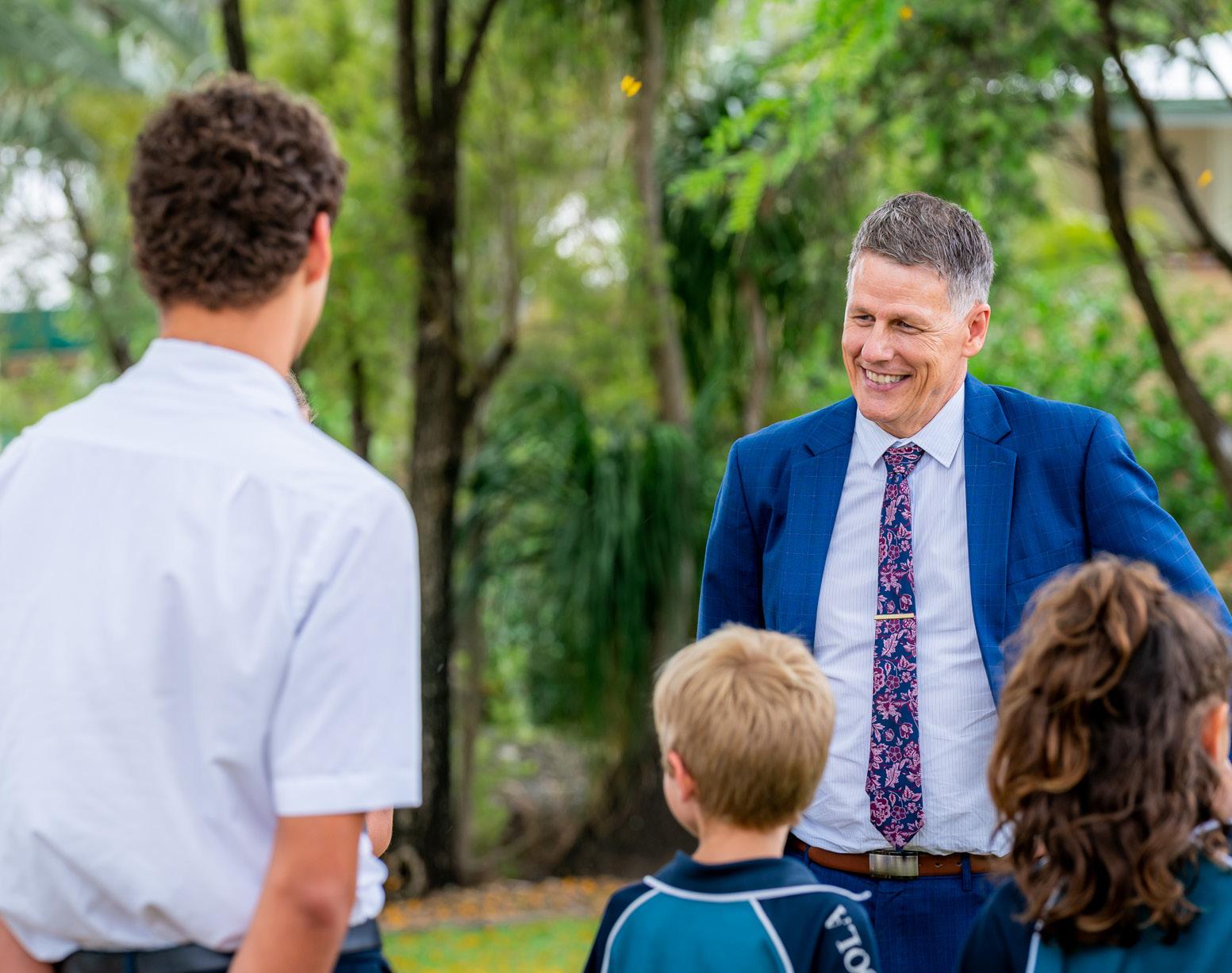








We believe that every person is a loved child of God, that He created each of us in His image, and that He has a purpose for every life.
So God created man in His own image, in the image of God He created him; male and female He created them.
Genesis 1:27
We also believe that we are called to live in community.
For just as each of us has one body with many members, and these members do not all have the same function, so in Christ we, though many, form one body, and each member belongs to all the others.
Romans 12:4-5
The first and most important relationship is with our Heavenly Father, which is made possible through Jesus Christ.
He has saved us and called us to a holy life - not because of anything we have done but because of His own purpose and grace. This grace was given us in Christ Jesus before the beginning of time.
2 Timothy 1:9
For our CCC community to function well, we need to treat one another with Christian love (Matt. 22:37-39). Our approach to pastoral care and wellbeing at CCC is underpinned by our Biblical worldview and is summed up in the scripture:
He has shown you, O mortal, what is good. And what does the Lord require of you? To act justly and to love mercy and to walk humbly with your God.
Micah 6:8
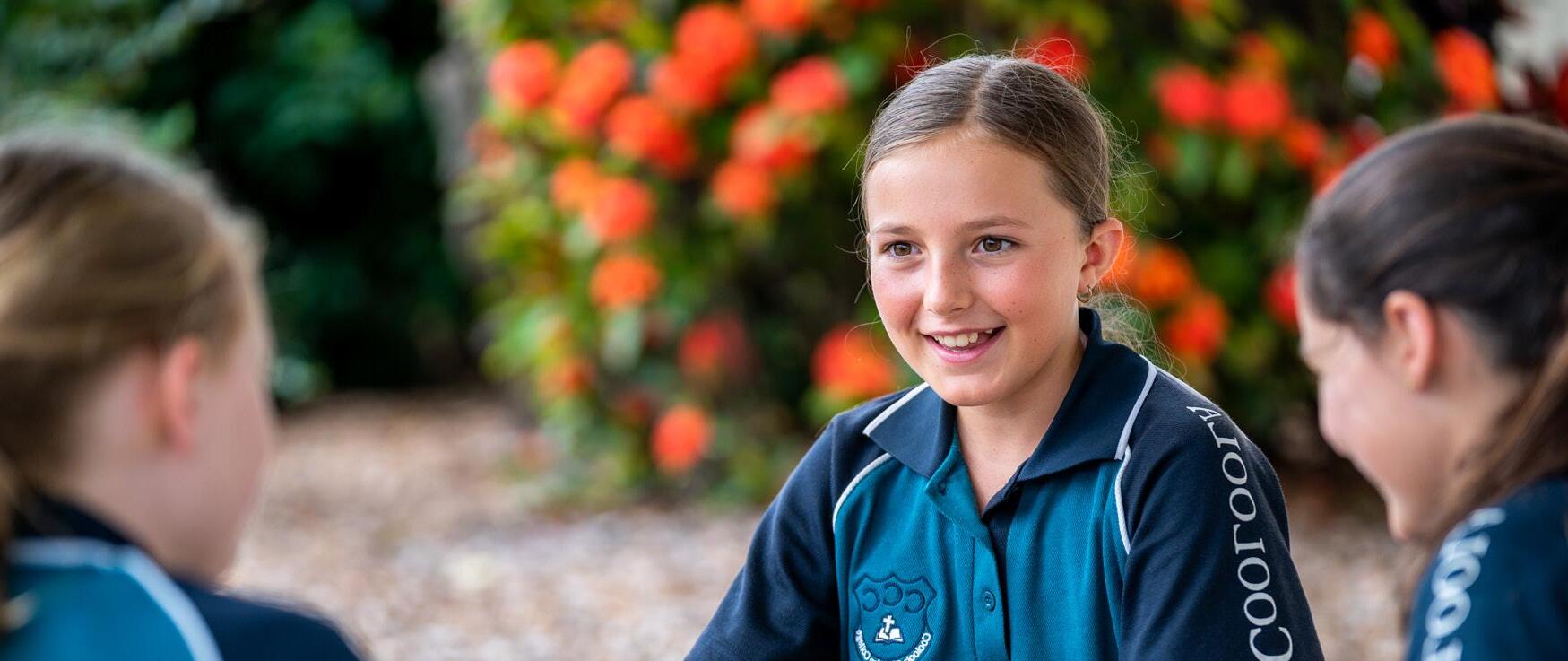
Dr Bill Anderson put it this way: “Justice without love leads to a stern security; love without justice leads to a weak warmth; justice and love lead to an authentic atmosphere.”
We strive for CCC to be known by:
• respect for the dignity of each person
• justice and forgiveness
• the acceptance and celebration of differences and gifts
• respect and care for God’s creation
At CCC we want every student to feel safe and cared for. We strive to provide a learning environment that supports each student in their studies, with the aim of helping everyone reach their full potential. We also recognise that schools need to provide for the whole child, including social/emotional needs, physical development, online safety and spiritual needs.
Our College has many policy and procedural documents covering areas such as anti-discrimination, cyber safety, disabilities, student self-harm, student protection, wellbeing, bullying, chaplaincy, and more. Therefore, this resource is not a policy document, but rather seeks to identify many of our services, programs and resources so that parents and students have a clear understanding of what CCC offers and how to access support at any stage.

Ross Waltisbuhl Principal


Ross Waltisbuhl Principal ross.waltisbuhl@ccc.qld.edu.au

Jendy Smith
Years 7 & 8 Coordinator jendy.smith@ccc.qld.edu.au

Todd Vogler Deputy Principal Secondary todd.vogler@ccc.qld.edu.au
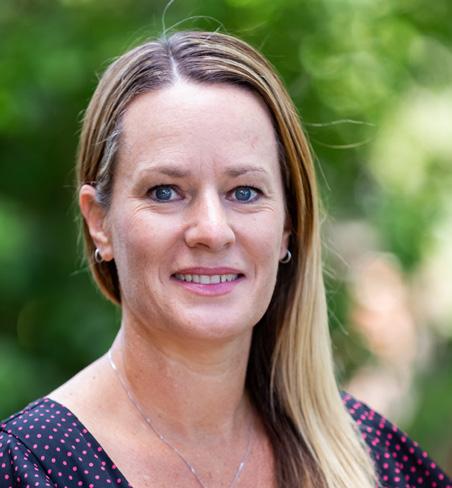
Wendy Oliver
Years 9 & 10 Coorinator wendy.oliver@ccc.qld.edu.au

Jacinta Cooke
Enrichment Coordinator Secondary jacinta.cooke@ccc.qld.edu.au

Natalie Cocks Deputy Principal Primary natalie.cocks@ccc.qld.edu.au

Blaine Packer Senior Phase Coordinator blaine.packer@ccc.qld.edu.au
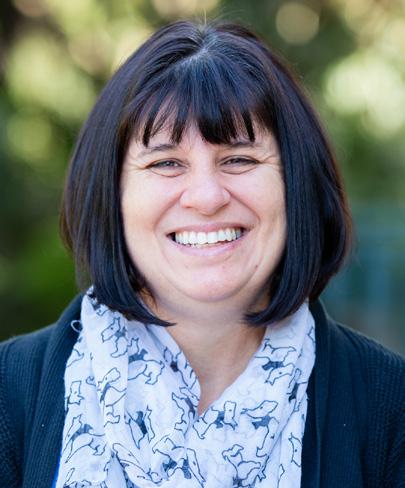

Narelle Collins & Tammy Shelley
Ready to Learn Room Team
narelle.collins@ccc.qld.edu.au tammy.shelley@ccc.qld.edu.au

Sarah Edwards
Enrichment Coordinator Primary sarah.edwards@ccc.qld.edu.au
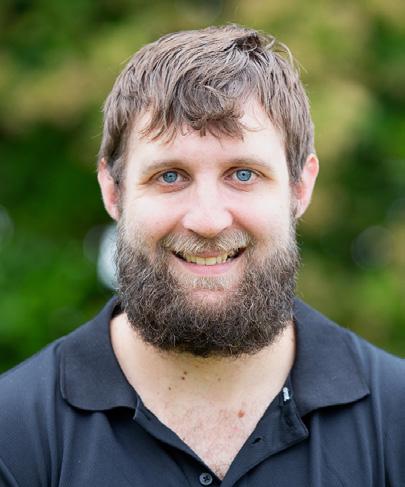

Linda Whysall Chaplain
linda.whysall@ccc.qld.edu.au
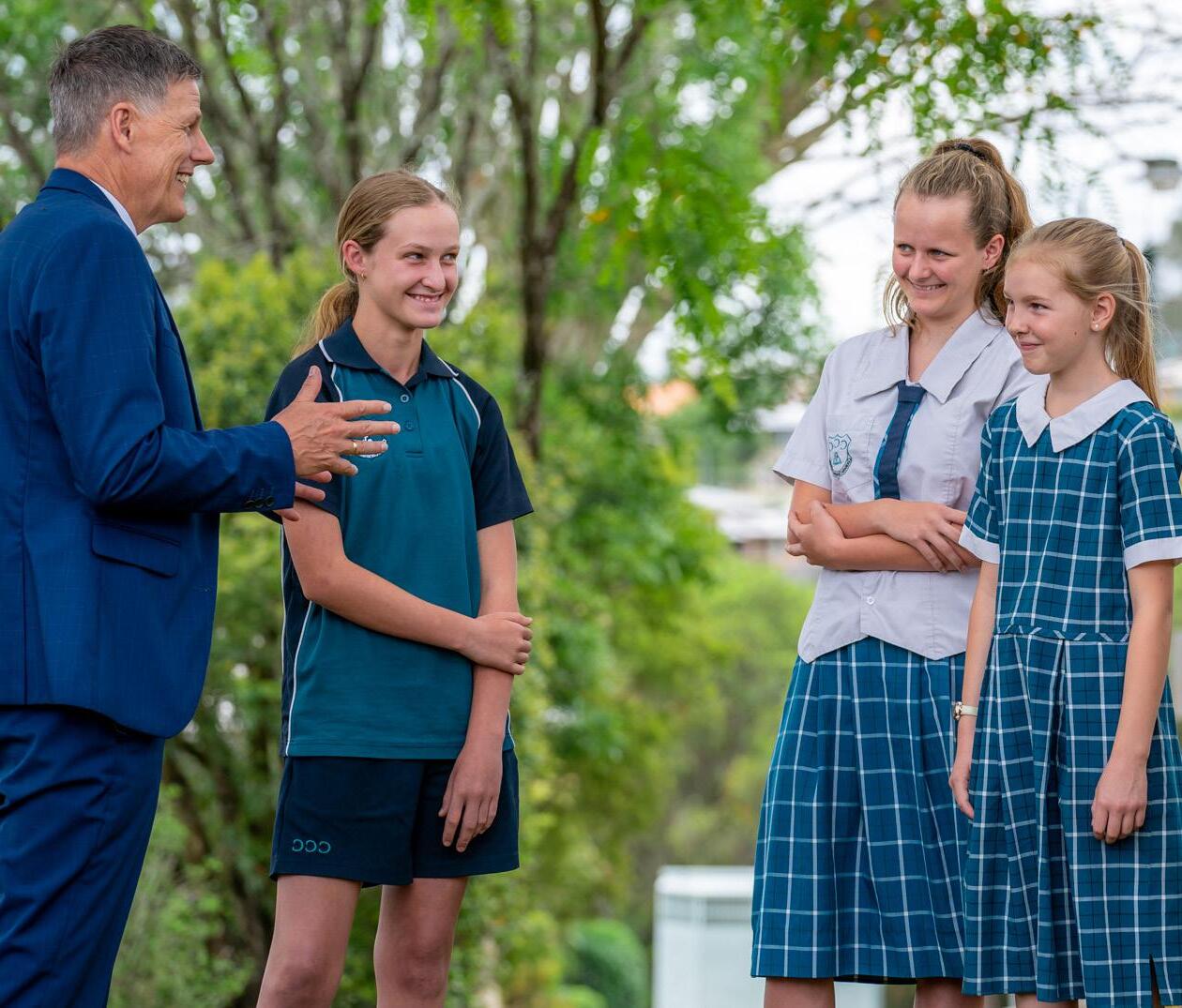
Student Protection Officers


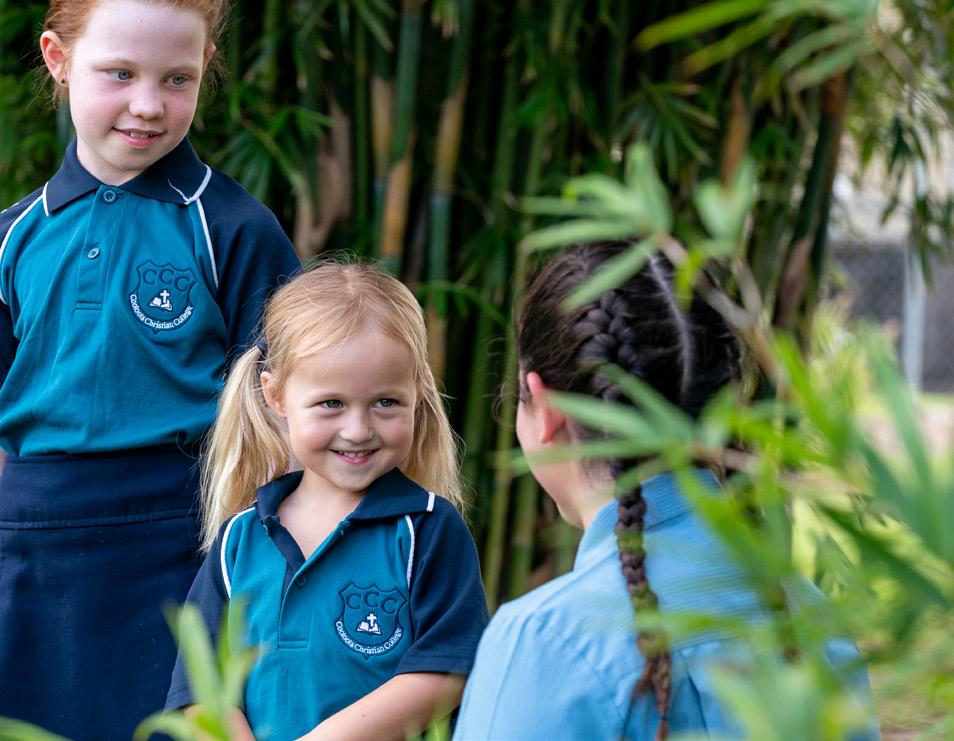
The head knowledge aspect of Pastoral Care begins with a biblical understanding that explains creation, fall, redemption and restoration. Matthew 7:24 tells us that this understanding is what we should build our life on.
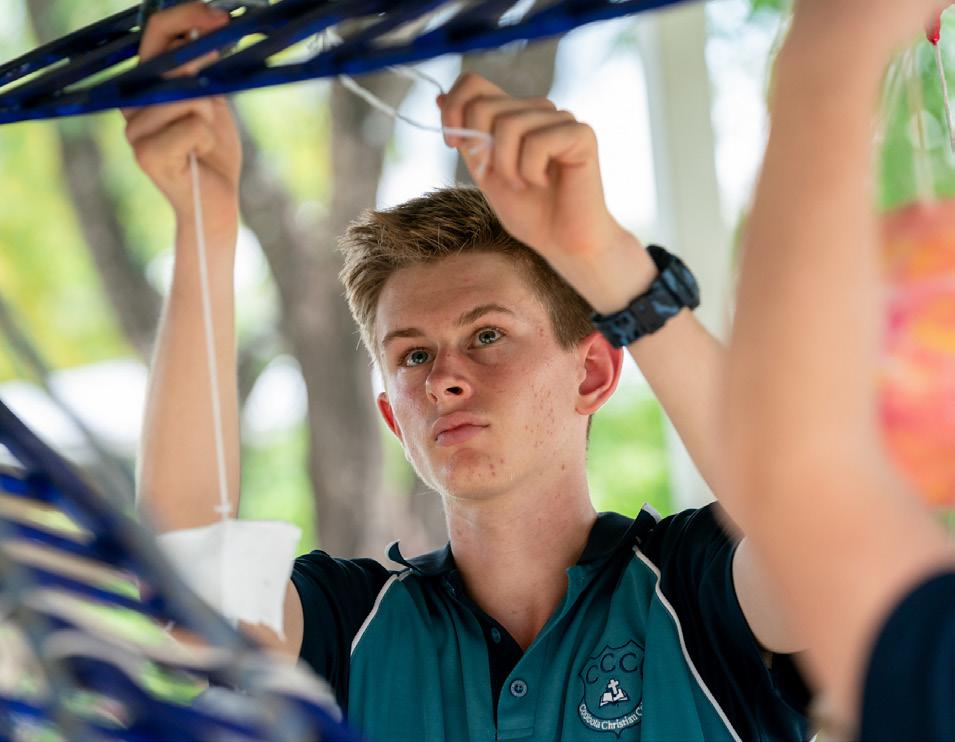
The natural response to this life in Christ is to love Him and love others (Matthew 22:37-39). This love is made visible in our acts of service. Students are taught the biblical basis for service, the right attitude and motivation and the value it brings. In service we are able to use our gifts, abilities and knowledge for God’s glory and His purpose.

With the leading of the Holy Spirit, student head knowledge leads to a heart response. When students respond to the gospel, they receive life in its full measure (John 10:10). In living this life, we seek to become more Christ-like in our character and behaviours (e.g. What would Jesus do?).

As part of a Christian community, all staff, students and families have responsibilities (Ephesians 4:2-6). Our pastoral care program unpacks this in terms of behavioural expectations, stewardship of God’s creation, Godly relationships, etc.
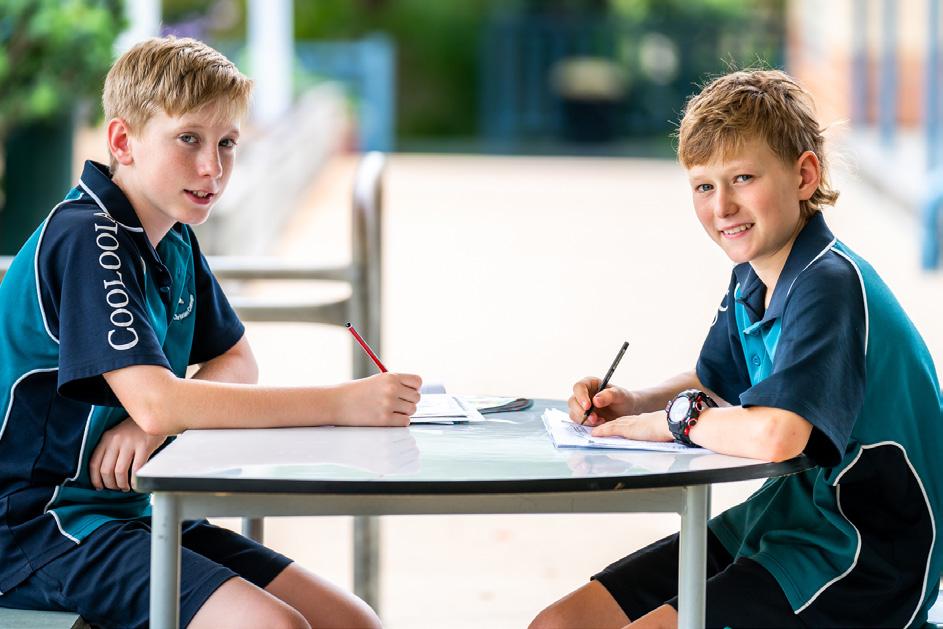

We have developed modules that cover a multitude of topics designed for Prep to Year 6. Our Pastoral Care (PC) team selects from these modules depending on the needs of students.
We use the My Life Rulz and UR Strong materials as well as modules that focus on character development, and biblical knowledge.
My Life Rulz is a surefire way to identify problematic thinking in children and teens, and provide the powerful insights and truth to help train them out of trouble and into strong, resilient futures. The UR Strong program is a whole-school friendship strategy that helps empower children with friendship skills necessary for a flourishing life and to support them through the ups and downs of friendship dynamics.
Teachers engage students in daily devotions from the selected modules and our Chapel Pastors speak with these topics in mind.
Chapel
On Friday mornings, our Primary and Secondary students attend Chapel in place of PC lessons.
Secondary Chapel - 10:15am
Primary Chapel - 11:15am
Secondary Pastoral Care lessons are organised into the following categories:
1. Skills. These lessons will cover a variety of age appropriate and relevant topics to help equip students for life - study skills, organisational skills, healthy lifestyle, academic integrity, internet safety and Godly character.
2. Wellbeing. Topics covered here may include mental health, diet, sleep, exercise, bullying, resilience, conflict resolution and emotional intelligence.
3. Realtalk Australia. Students from Year 7 to 12 will engage in Realtalk presentations and lessons to help provide them the skills and knowledge required to flourish in today’s world. Age appropriate conversations around real topics such as relationships, personal identity etc.
4. Careers & Futures. Students explore personal interests, skills and career pathways, career tools modules and job readiness, in preparing for the future.

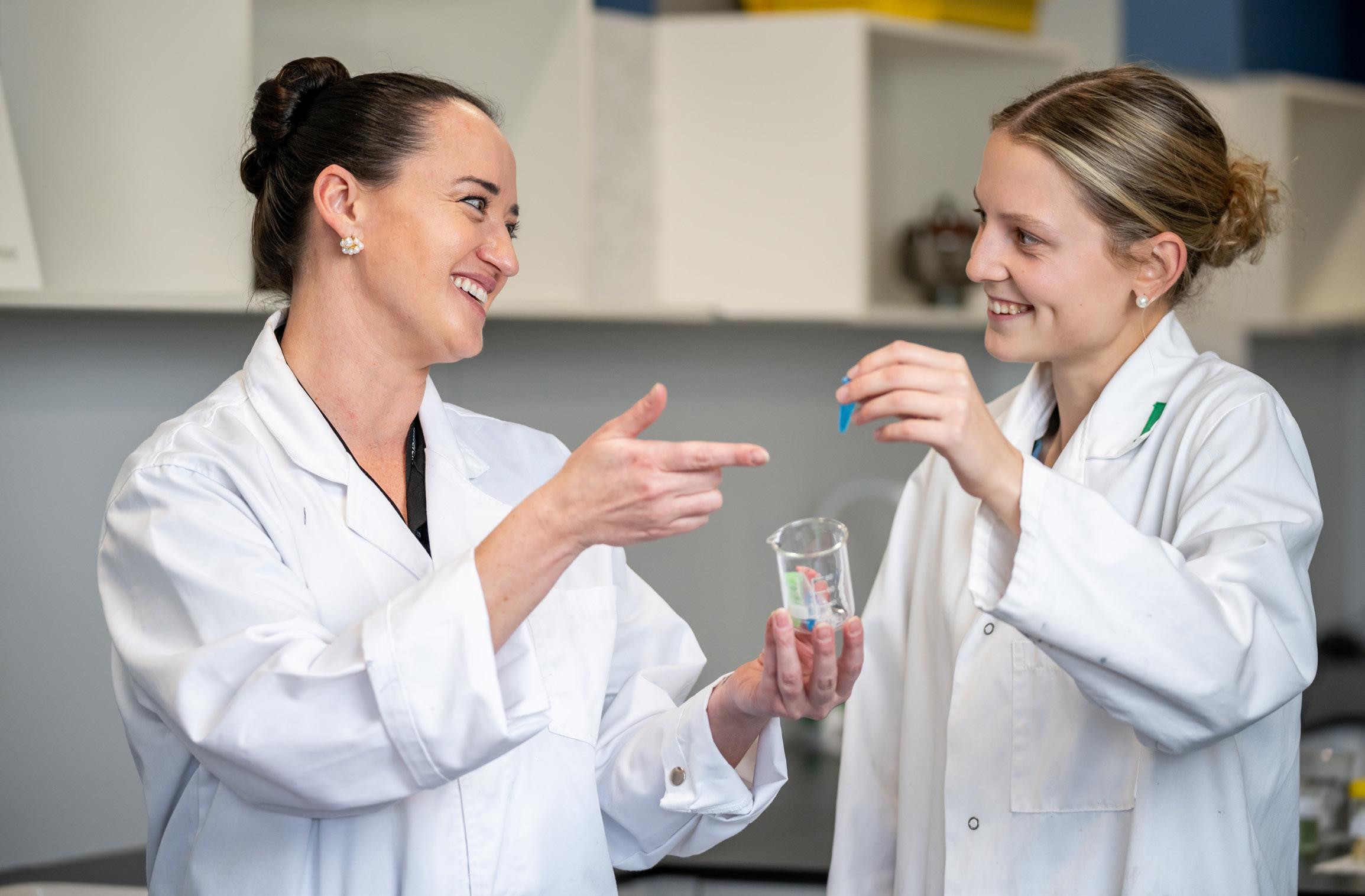
Secondary students meet with their Pastoral Care (PC) teacher during designated lessons 3 times per week. Primary class teachers will spend time each day checking in with their class for devotions and prayer.
The Deputy Principals have oversight for Prep to Year 12 wellbeing. The Deputy Principals will be notified when support meetings take place and will often attend these if other support strategies don’t seem to be helping.
Coordinators have responsibility to assist PC and class teachers to support students where an issue starts to impact learning or wellbeing. They may also wish to discuss behavioural matters including uniform issues, homework or classroom disruptions. If an issue comes to the attention of the Coordinators they will contact the parents so that they can work together to understand, consider support strategies and discuss future options.
Our College has two Student Protection Officers (see page 7). These speciallytrained staff will introduce themselves to all students early each year. They are available to talk about serious issues including selfharm, neglect, abuse or any other potentially harmful circumstances. If an issue is raised with an SPO, they are required to follow specific protocols depending on the nature of the issue, always with the student’s wellbeing as the key objective.
Both Primary and Secondary students can make appointments at any time with our Chaplain and can talk about anything that is worrying them. Our Chaplain attends many of our camps and excursions, which is a great way to get to know students away from the normal classroom setting. Parents can also contact our Chaplain via administration or supportservices@ccc.qld.edu.au if they want to make an appointment.
The College has a current Student Protection Policy which provides written processes that address the protection of students. The Policy details:
(a) how the school will respond to harm, or allegations of harm, to students; and
(b) the appropriate conduct of the school’s staff and students.
A copy of this policy is located on our website: www.ccc.qld.edu.au/policies-reports/
At CCC we believe every child is created in the image of God and has been specially gifted with unique strengths and abilities. Where it is identified that a student could benefit from additional support to reach their potential in social-emotional, behavioural or learning development, our Enrichment Team will often be called upon to develop and deliver programs or assistance. We also have regular visits from professionals including our speech pathologist and occupational therapist.
Mary Valley Wesleyan Methodist Church
Pastor Brendan Edwards Office: 5484 3687 Mobile: 0417 757 397
Gympie Baptist Church
Pastor Ben Cumerford Mobile: 0438 545 188
Gympie Presbyterian Church
Reverend Daniel Saunders Mobile: 0409 574 938
Gympie Wesleyan Methodist Church
Reverend Gary McClintock Office: 5482 3618 Mobile: 0412 688 353
Gympie Church of Christ
Pastor Kevin Dunn Mobile: 0452 282 931
If students or parents would like access to other services, we can provide contact details for:
• Clinical Psychology Services
• Christian counselling
• Associated Pastors & Youth Leaders
Beyond Blue: www.beyondblue.com.au
Kids Help Line: www.kidshelpline.com.au 1800 55 1800
Headspace: www.headspace.org.au
Office of the Australian Information Commissioner (OAIC) for reporting online behaviour
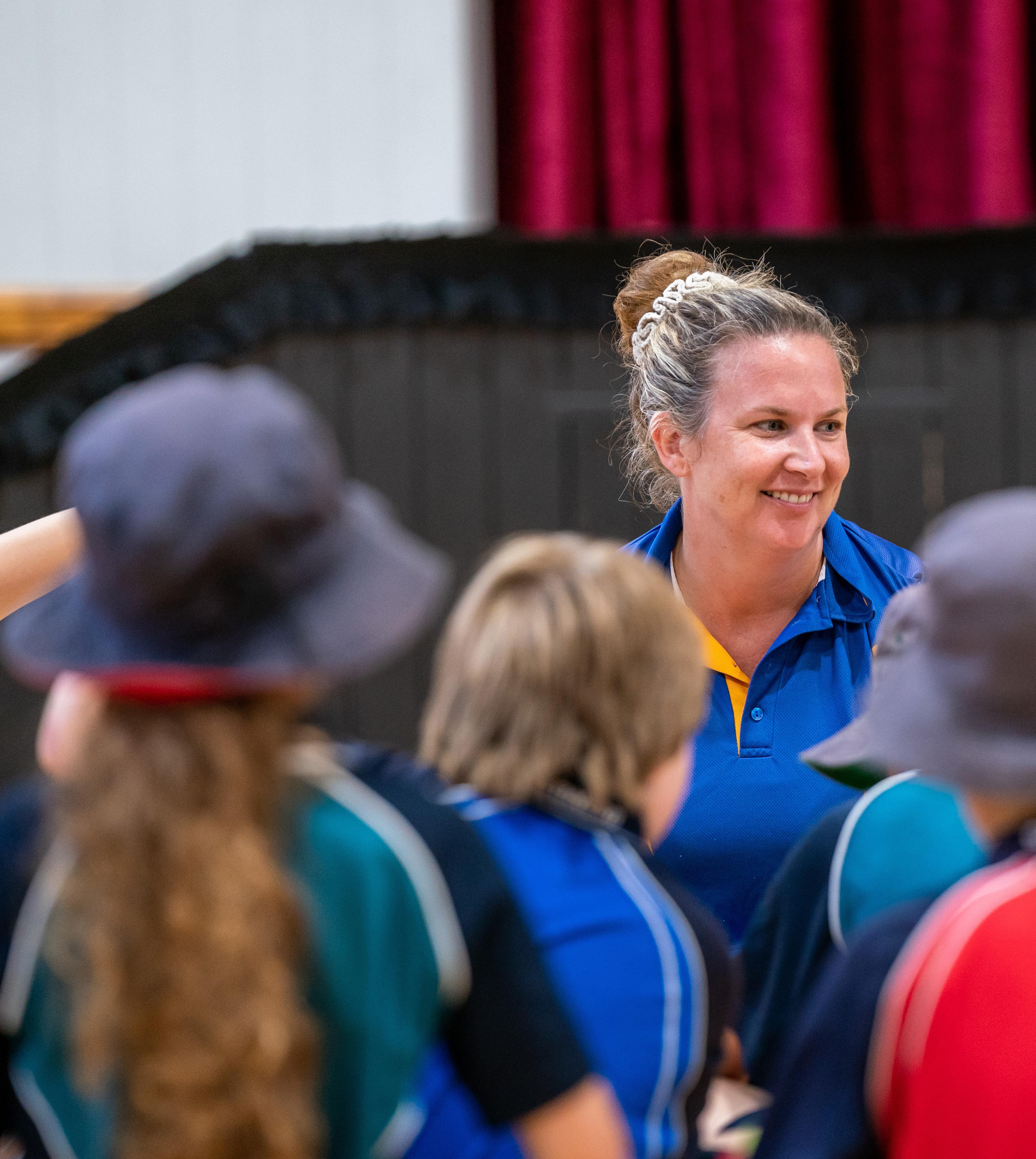
URSTRONG is a proactive program that is all about empowering kids with friendship skills! The URSTRONG program is a whole-school friendship strategy because we know, that at the heart of student wellbeing and learning are strong, healthy friendships. URSTRONG’s approach, underpinned by the Friendology curriculum equips students with the essential skills to build and maintain positive relationships.
Why friendships matter:
Research shows that healthy relationships are the #1 predictor of happiness and success. Strong friendships also serve as a key protective factor against mental health conditions and loneliness.
Explicitly teaching friendship skills:
Friendships are the most important relationship in a child’s life, and just like any other skill, they can (and must) be taught. URSTRONG provides a common language of friendship in schools, empowering students to navigate social dynamcis with confidence.
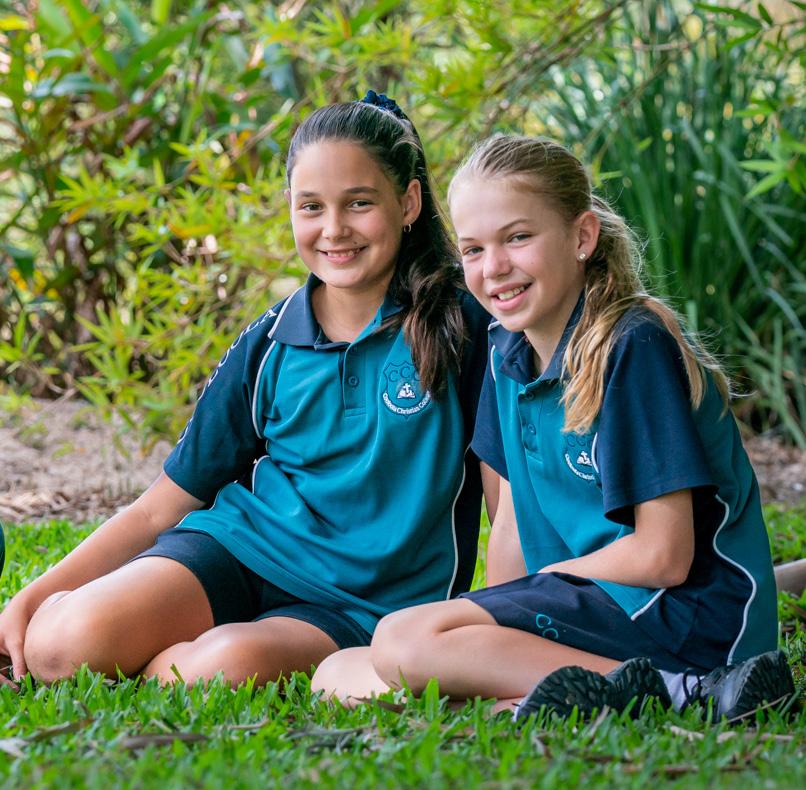
Practical tools for real-life friendships: Using kid-friendly language and engaging visual tools, URSTRONG helps students understand and manage common friendship challenges. They’ll learn:
• How to make friends and foster healthy connections.
• Emotional regulation strategies and conflict resolution skills.
• The difference between normal friendship conflicts (Friendship Fires®) and Mean-on-Purpose behaviour.
A progressive learning model: Friendology builds on friendship skills year after year, growing alongside students as they develop socially and emotionally. Through engaging lessons, updated illustrations, and age-appropriate strategies, students gain the tools they need to create and maintain feel-good friendships that help them thrive!
By embedding URSTRONG’s approach school-wide at CCC, we create a positive, connected community where every child can flourish.
Life Rulz Program
My Life Rulz builds emotional resilience in children and teens through teaching foundational beliefs/rules that help to protect their thoughts and mental health from anxiety, depression and hopelessness.
Bullying is an ongoing and deliberate misuse of power in relationships through repeated verbal, physical and/or social behaviour that intends to cause physical, social and/or psychological harm. It can involve an individual or a group misusing their power, or perceived power, over one or more persons who feel unable to stop it from happening. https://bullyingnoway.gov.au/
Behaviours that do not constitute bullying include:
• mutual arguments and disagreements (where there is no power imbalance);
• not liking someone or a single act of social rejection;
• one-off acts of meanness or spite (except online behaviour);
• isolated incidents of aggression, intimidation or violence.
However, these conflicts still need to be addressed and resolved.
Bullying can happen in-person or online. Online bullying, or cyberbullying, can involve many digital platforms, including email, photo sharing, chatrooms, texting, social media sites etc., and need only be single targeted incidents.
In general, bullying in-person can be obvious (overt) or hidden (covert). Bullying behaviour is repeated, or has the potential to be repeated, over time. Bullying of any form or for any reason can have immediate, medium and long-term effects on those involved, including bystanders. Single incidents and conflict or fights between equals are not defined as bullying (except in the case of online behaviour, where one incident is considered cyber bullying).
CCC staff are aware of the potential harmful effects of bullying and we take reports of bullying seriously. Our primary aim in responding to bullying is to restore a positive learning environment for all students. We commonly employ a range of strategies to help restore relationships, understanding that each situation is unique. Once we are aware of a bullying situation the reactive strategies are designed to empower the person impacted and prevent it from happening again.
If a student is struggling to make friends, they can head to the Buddy Bench. Here, our Year 6 leaders will help them find a friend and join a game at break times.
Every lunchtime, Year 6 and Year 12 leaders manage our Primary and Secondary Sports Cupboards respectively. Here students can borrow play equipment and invite a friend to join their active fun.
The best way to avoid arguments in the playground is to have a range of activities to engage in. CCC staff and students provide plenty of options for little kids and big kids. Check out the complete list in the Parent Lounge and Student Café.

Some of the key steps in reporting bullying include:
• Be aware of the definition of bullying and what constitutes bullying behaviour;
• Immediately remove yourself from the situation and report to a staff member in whom you have confidence, a friend or your parents;
• Do your best to detail the behaviour, any witnesses, the location and time;
• It can be helpful to keep a diary with these details.
https://bullyingnoway.gov.au
Follow these guidelines to deal with cyberbullying at CCC or at home:
• Take screen shots;
• Block the perpetrator;
• Change your security settings (social media);
• Report the incident to your parents and/or the school.
We regularly conduct a bullying survey (with Year 4 to 12 students) to determine where, how and why students might experience bullying and, using this data, we strive to improve what we do as a whole community.
Our College does not tolerate violence of any kind. Our expectations for staff, students and visitors are clear: show respect and kindness in all interactions. If a student experiences violence, they should report it immediately to the Class Teacher and Coordinator.
Depending on the situation and findings of any investigation, parents will be contacted the same day and it is possible that the perpetrator will be removed from their classes/playground until the matter is fully investigated and managed.
If you feel that a situation has not been handled well, parents and students can make a formal complaint via the CCC website: www.ccc.qld.edu.au
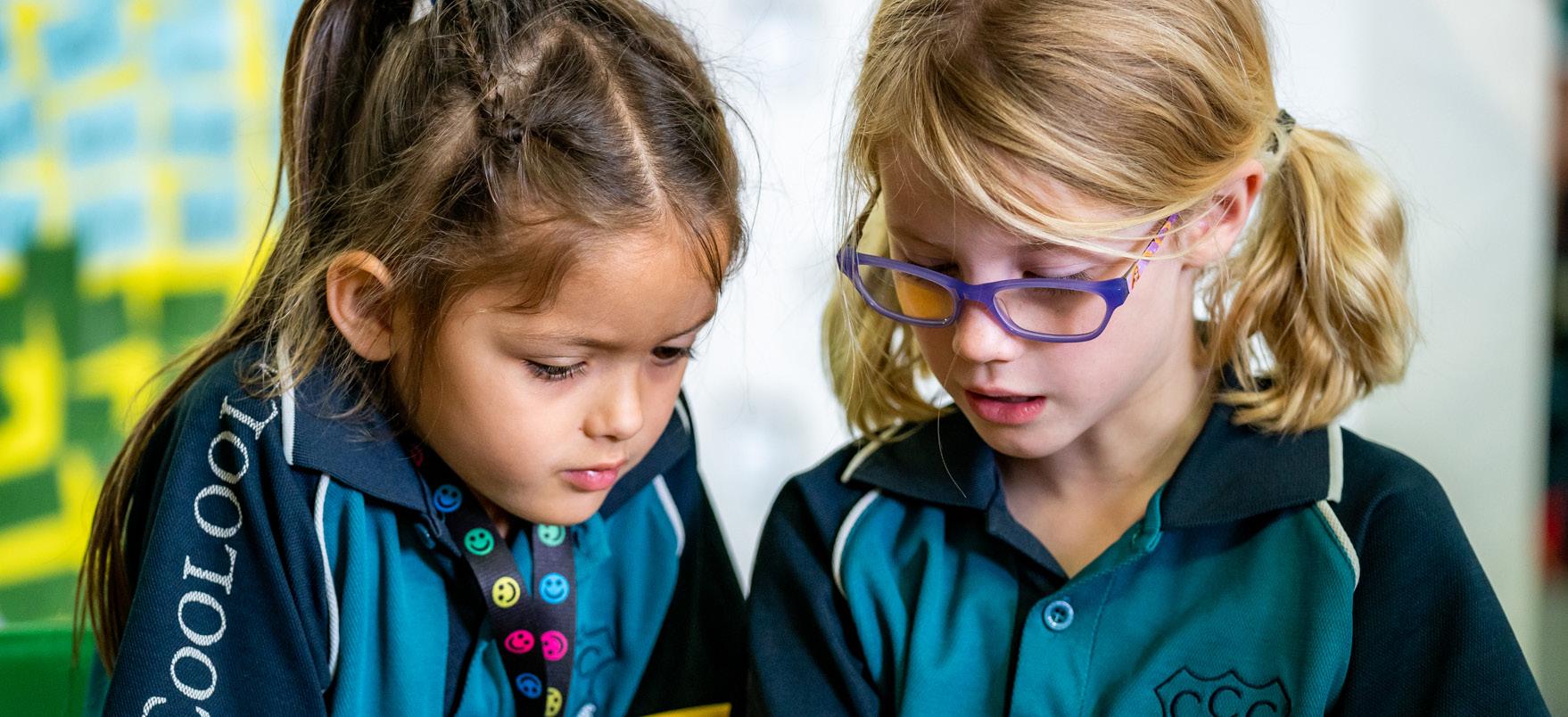
Our amazing Ready to Learn team also has a raft of Pastoral Care options for supporting students’ social/ emotional and wellbeing needs, including the award-winning BEAR program, Responsible Thinking Program and Restorative Practice.
Introduced in 2013, our Responsible Thinking Process (RTP) recognises that all teachers have the right to teach and all students have the right to learn. When a student chooses to behave in a way that impedes effective teaching and learning (or if they are causing danger to self or others), staff will turn to RTP.
By asking students questions about their choices, they are encouraged to understand that they are part of a learning community and that their choices are having an impact (natural consequences) on others. Sometimes students will be referred to the Ready to Learn Room, where a staff member will work with them one-on-one to help them understand the impact of their choices and to unpack the motivation behind it.
Co-created by Alan Bowmaker (Guidance Officer) & Selina Taggart (Chaplain) from Bundaberg North State School after the 2013 floods, the BEAR Support Program (Breathe, Exit, Ask, Relax) is a 4-part strategy designed to help students with social-emotional learning by assisting the development of self-regulation through emotions management. This program is the 2014 State & National Resilient Australia Award winner and the 2016 QLD Child Protection Award winner.

The After-School Support Class is an important part of our commitment to ensuring a safe, caring and effective learning culture at CCC. Students who struggle to meet school expectations or who repeatedly choose to disrupt learning will be required to attend.
Parents will be notified at least 1 week in advance so arrangements can be made for a late pick-up. Parents are requested to arrive 10minutes before the end of the class, so they can conference with staff and their child, so both school and home-based support strategies can be implemented. During the afternoon, students will work independently on assigned tasks to help them identify better behaviour choices moving forward, and the supervising teacher will spend time in a pastoral conversation with the student.
Where and when does the class run? The class is usually run in the Learning Hub on Mondays from 3:05-4.00pm. This gives time for a short break to grab a drink and something to eat before arriving at the Learning Hub. (We suggest your child packs extra food in their lunchbox).
Which year levels are included? Students from Years 5 to 12 may be required to attend this class. Where younger students are struggling with behaviour or expectations, a parent meeting will be requested by the class teacher or Coordinator.
Isn’t this just another name for after-school detention? Whilst this class is run after school and students attend in response to repeatedly not meeting the values of the College, the purpose is to facilitate self-reflection, teacher/ student discussion and strategic planning to clarify behaviour expectations and improve learning outcomes for the student.

What if my child fails to attend the class? Failing to attend (without a legitimate reason) will put the student’s ongoing enrolment at CCC in jeopardy. Contact from the Deputy Principal will be made to discuss next steps. Attendance will be required on the following Monday for any legitimate absence.
What if my child is referred to the support class on multiple occasions in one semester? This would indicate that the current strategies are not working for this student and will result in a discussion with the Deputy Principal regarding the viability of the enrolment.
What constitutes a legitimate reason for nonattendance? In the event of student illness or medical appointment or if you are unable to make travel arrangements, your child’s After-School Support Class will be rescheduled to the following Monday.
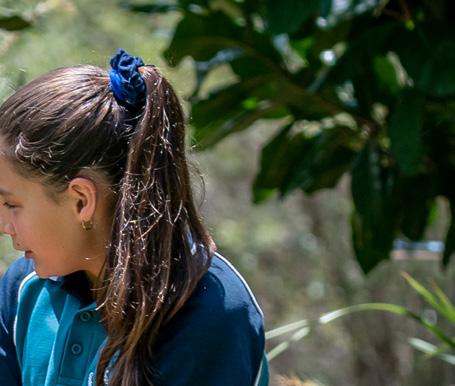

Restorative Practice is a strategy that seeks to repair relationships that have been damaged, including those damaged through bullying. It does this by bringing about a sense of remorse and restorative action on the part of the offender and forgiveness by the victim. Restorative practice may be employed as part of behaviour development where relationships have been damaged and both parties are willing to engage in the process. A restorative process may be facilitated by our Wellbeing Team as part of, or in place of, the normal RTP processes.
The facilitator follows a very structured protocol to step both parties through the restorative process.
Therefore, if you are offering your gift at the altar and there remember that your brother or sister has something against you, leave your gift there in front of the altar. First go and be reconciled to them; then come and offer your gift.
Matthew 5:23-24
Jesus wants us to live in a right relationship with each other. Restorative practice aims to restore relationships through open and honest conversations, moderated by staff. Through these conversations, both the person who has been harmed and the person who has caused the harm may be able to gain a deeper understanding of what has contributed to the issue, and take steps to repair the relationship.
We are COURAGEOUS when we can admit that we have made a mistake or hurt someone. We are LEARNERS when we actively participate and listen to the viewpoints of others. We are EXCELLENT when we seek to promote healing and change within our relationships. We are ACCOUNTABLE when we accept responsibility for causing harm, show remorse, make reparation if necessary, and seek forgiveness. We are RESPECTFUL when we speak to and treat others with kindness and understanding, and when we acknowledge their worth.
Be kind and compassionate to one another, forgiving each other, just as in Christ God forgave you.
Ephesians 4:32
School refusal is when a child gets extremely upset at the idea of going to school, or often misses some or all of the school day, and this distress doesn’t go away. School refusal can mean that children have trouble going to school – or that they don’t go to school at all. Children who refuse to go to school usually spend the day at home with their parents’ knowledge, even though their parents try really hard to get them to go. It might start gradually, as parents find it harder and harder to get their child to go to school. Or refusal might happen suddenly, such as at the start of school term or after a physical illness.
For more information about school refusal, including how to talk with your child, strategies, and getting help, refer to the School Refusal booklet available on Parent Lounge.
What if a student or parent has a concern regarding learning or assessment?
Step 1: You should start by approaching the class teacher either by email or by appointment. Hopefully they can resolve it at this level.
Step 2: If the class teacher cannot resolve/ address the issue, they may choose to involve the coordinator.
Step 3: If it is still not resolved then it can be taken to the Director of Teaching and Learning.
3
What if a student or parent has a concern about a referral to the Ready to Learn Room?
NOTE: Students and parents are asked not to directly approach the Ready to Learn Room staff as they are simply processing the referral and cannot comment on the situation that lead to the referral.
Step 1: You should start by emailing or making an appointment with the referring teacher if it was a class matter.
Step 2: If not resolved, set up an appointment with the Deputy Principal or Coordinator.
What if a parent or student has a concern about an incident or behaviour that impacts wellbeing or a class incident?
Step 1: Start by speaking to the class teacher in Primary or PC teacher in Secondary.
Step 2: If the class teacher cannot resolve/ address the issue, they may choose to involve the coordinator.
Step 3: If not resolved, make an appointment to see the Deputy Principal.
4
What if my child is physically or verbally assaulted?
Step 1: We encourage students to report these incidents immediately to Administration or to a staff member. This helps us to act immediately and respond to any of their needs.
Step 2: If your child comes home describing this kind of event and hasn’t reported it to the school, please contact us as soon as possible.
Step 3: If this is an ongoing issue which has developed into a bullying situation, please follow the steps outlined in the Bullying section of this booklet (pp. 16-18).
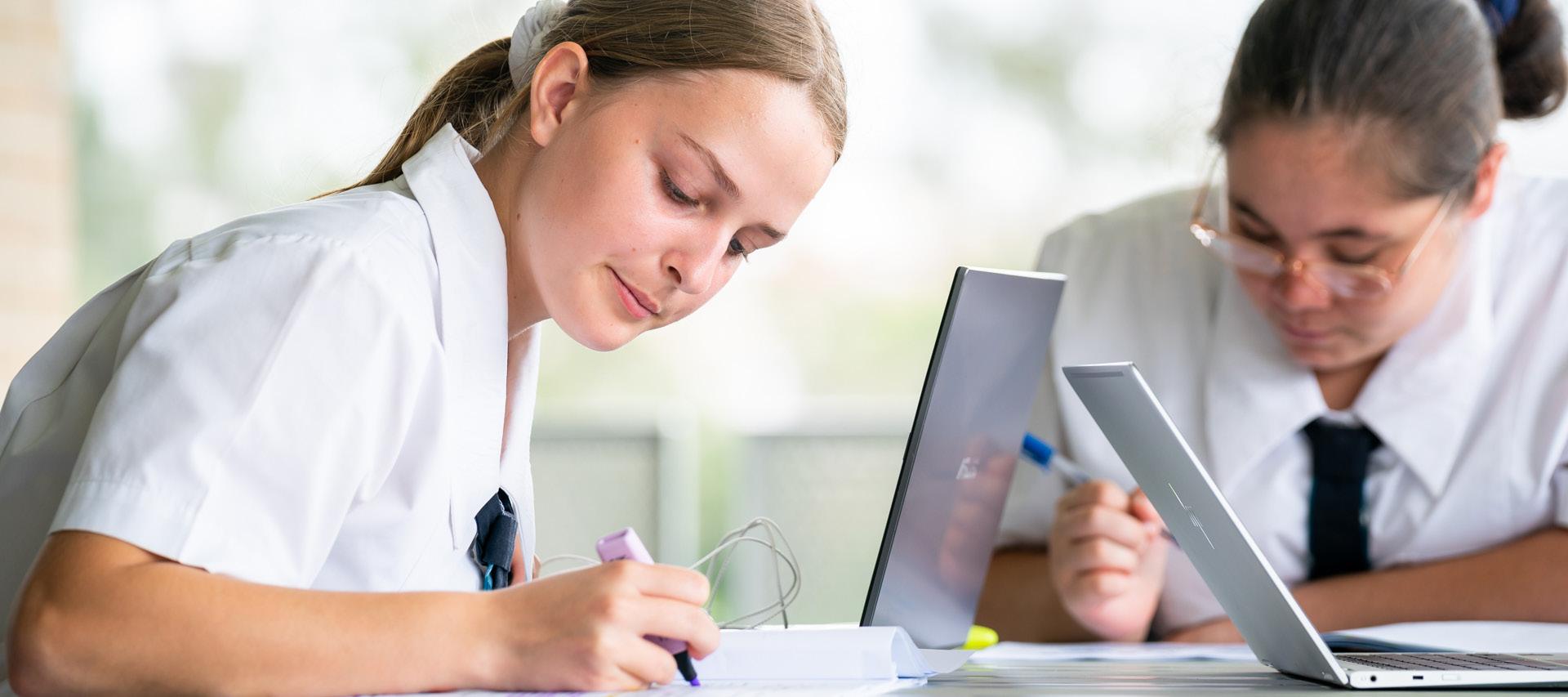
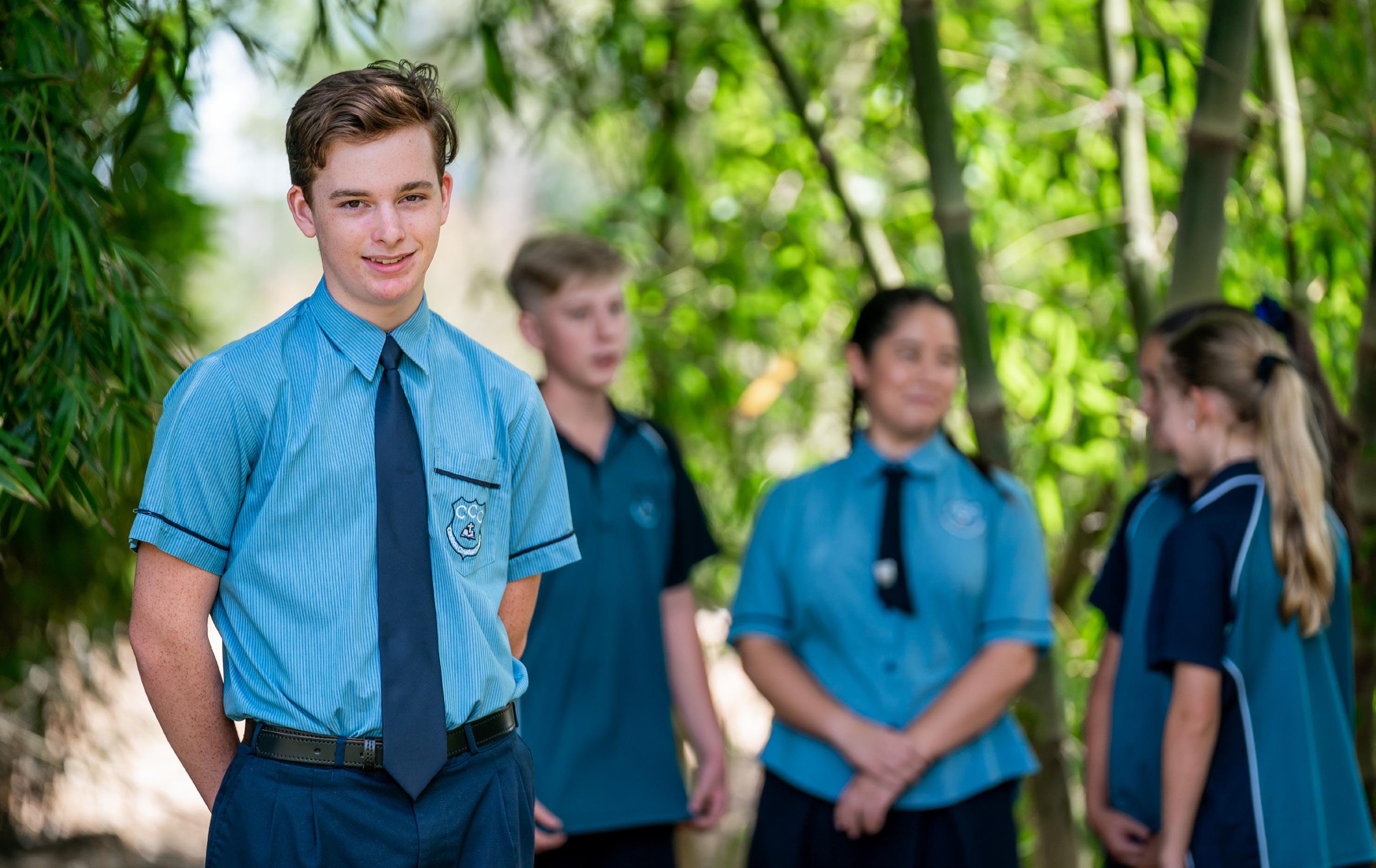
Cooloola Christian College provides a safe, caring learning community, reflecting values and ethics explored through a Christ-centred and Biblically-based curriculum. Cooloola Christian College provides continuous opportunity for students to respond to the Gospel of Jesus Christ, recognise and develop their God-given talents, and conduct themselves in a God-honouring manner; all so that our Graduates are enabled to be:
• critical and creative thinkers;
• compassionate servants demonstrating good character;
• ethical and moral decision-makers;
• informed and responsible global citizens;
• learners for life;
• positive contributors in God’s world.
It is our goal to help all students grow and learn in a safe and supportive environment. We pray that student wellbeing services at CCC contribute to these types of outcomes for your child.
